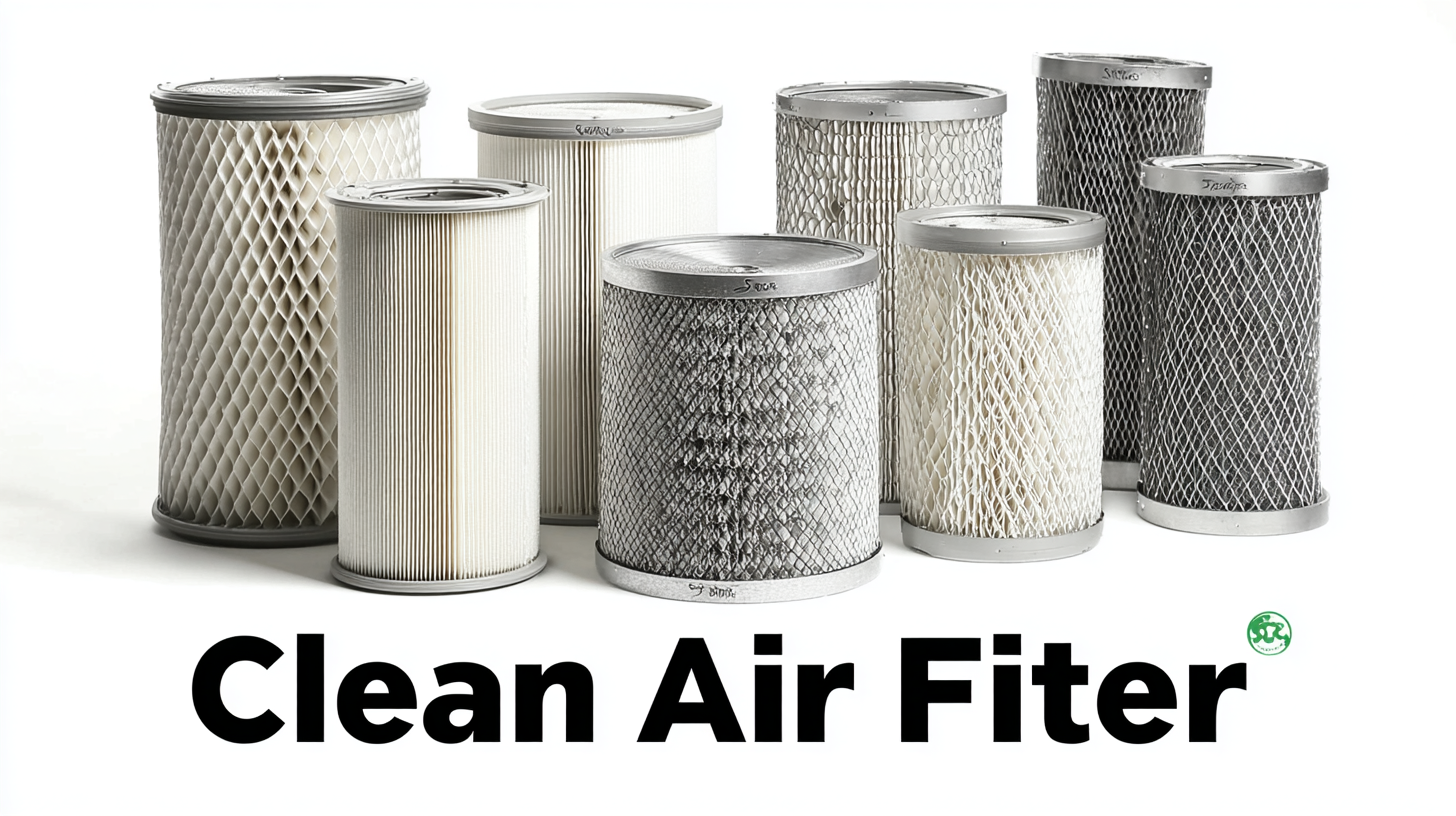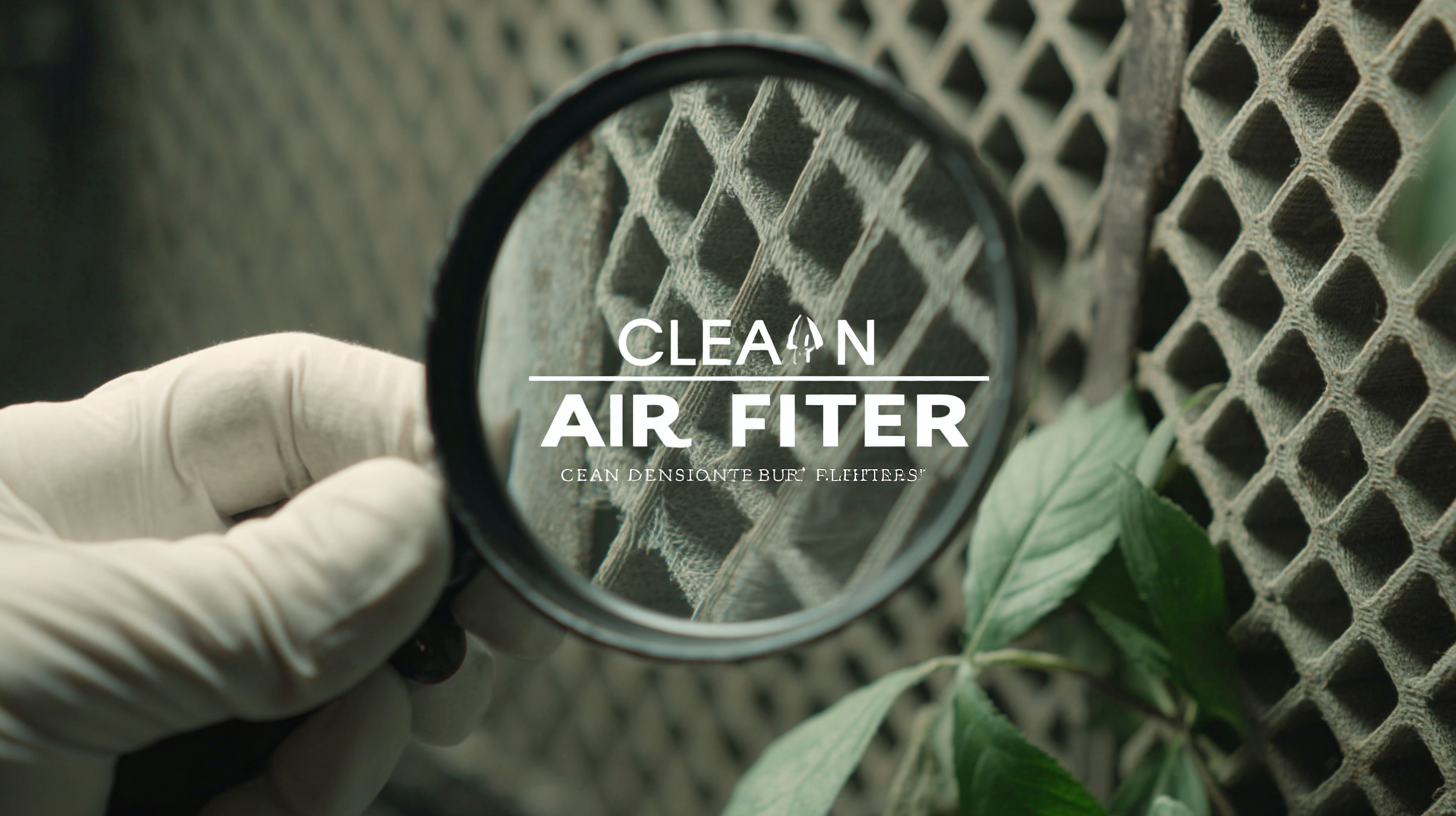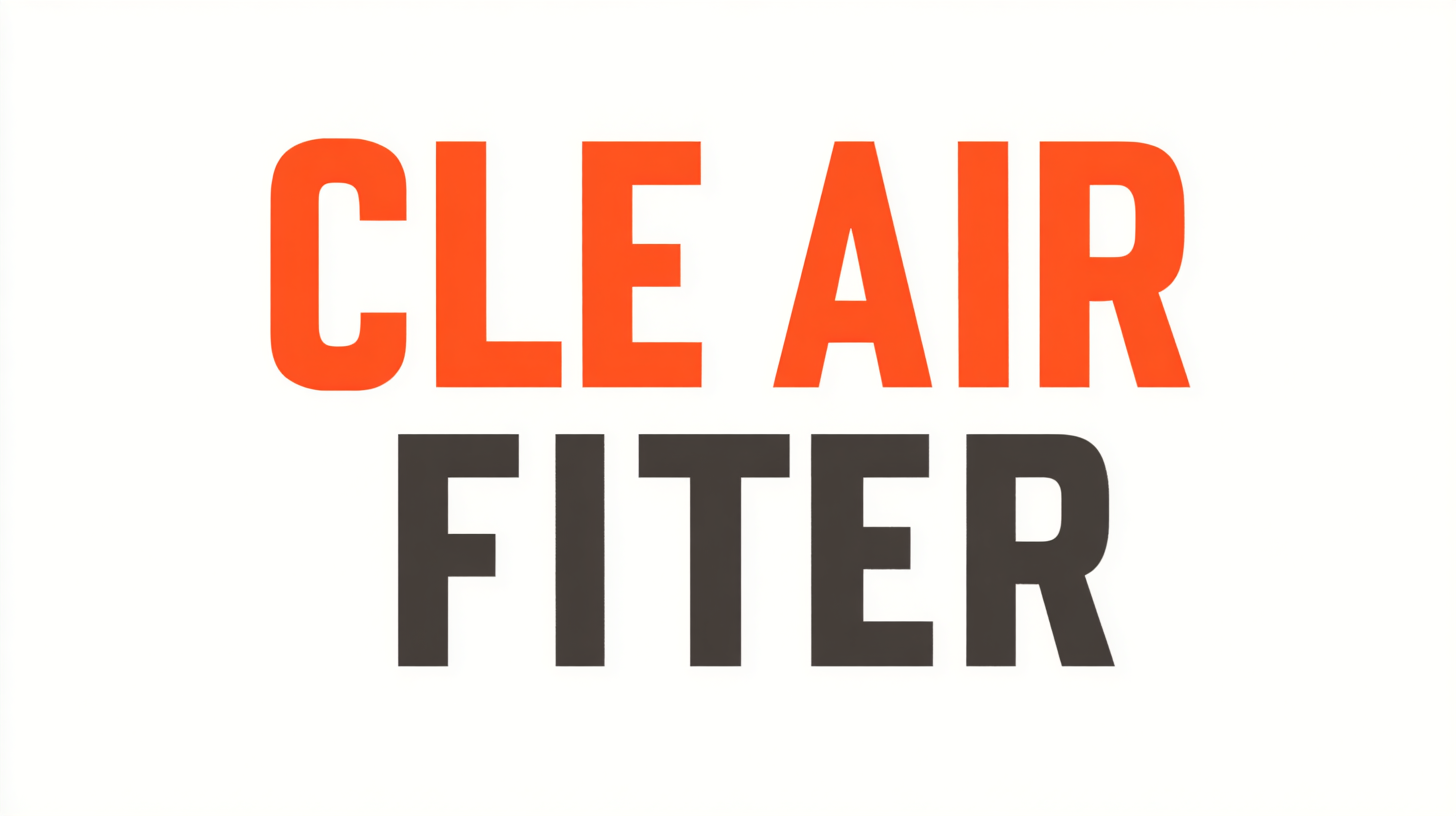
Unveiling the Secrets to Identifying Top Suppliers of Best Clean Air Filters
In an era where the quality of indoor air is becoming increasingly crucial for health and well-being, the demand for high-efficiency Clean Air Filters is on the rise. As consumers and businesses alike prioritize clean air solutions, identifying the top suppliers who excel in creating and providing the best Clean Air Filter options is essential. This article aims to unveil the secrets behind recognizing reputable suppliers that offer advanced filtration technologies, sustainable practices, and unmatched customer service. By exploring factors such as product performance, certifications, and customer feedback, we will guide you on a journey to find the most reliable sources for Clean Air Filters that not only meet your needs but also contribute to a healthier living environment. Join us as we delve into the world of clean air solutions and learn how to make informed choices that will protect you and your loved ones from airborne pollutants.

Understanding After-Sales Service Advantages in Clean Air Filter Procurement
When procuring clean air filters, it's essential to consider not just the product quality but also the after-sales service provided by suppliers. A reliable after-sales service can significantly enhance your experience and ensure the longevity and effectiveness of your air filtration system. Good suppliers will offer warranties, maintenance options, and responsive customer support, which can save you time and money in the long run.
**Tip 1:** Always inquire about the warranty period and what it covers. A reputable supplier will typically offer an extended warranty that covers both parts and labor, providing you with peace of mind.
Another critical advantage of quality after-sales service is the availability of replacement parts and technical support. This ensures that any issues can be quickly resolved, minimizing downtime and maintaining optimal air quality in your environment.
**Tip 2:** Check for suppliers that offer training or resources on product maintenance. Understanding how to properly care for your air filters can prolong their lifespan and improve their performance, making your investment more worthwhile.
Evaluating Repair Costs: A Key Factor in Selecting Quality Air Filters
When selecting quality air filters, evaluating repair costs is crucial. High-quality air filters not only enhance indoor air quality but also impact the longevity and maintenance requirements of your air filtration system. Budgeting for potential repairs can help you avoid unpleasant surprises later on. A well-maintained filtration system can reduce long-term costs, making it essential to choose filters that balance initial cost with future repair considerations.

Tips for choosing air filters include researching the lifespan of different filter types and brands. Filters that require frequent replacements might seem cheaper initially but can lead to higher cumulative costs. Another essential tip is to consider the filter's performance ratings, such as MERV ratings, which indicate how effectively a filter can trap particles. Investing in higher-rated filters may have a higher upfront cost but can yield better air quality and reduced maintenance needs in the long run. Lastly, check for warranties or service agreements that can help manage repair costs over time, ensuring you're protected against unforeseen expenses.
Exploring the Future Trends in Clean Air Filter Technology
As the clean air filter technology evolves, we are witnessing significant advancements that promise to reshape the industry. The increasing awareness of air quality issues, exacerbated by events like the COVID-19 pandemic, has dramatically influenced the development of air filtration systems. Trends indicate a shift towards more efficient, innovative technologies such as HEPA and activated carbon filters, which enhance the ability to eliminate microscopic pollutants and allergens from the air. The demand for air purifiers, particularly in residential settings, is projected to grow substantially, with market sizes expected to reach impressive figures by 2030.
Moreover, the impact of smart technology cannot be overstated. The integration of artificial intelligence into clean air systems is paving the way for smarter, more automated solutions that continuously adapt to environmental changes. This trend in smart home devices not only improves the user experience but also elevates the overall effectiveness of air purification, ensuring constant monitoring and optimization of air quality. As we look to the future, the synergy of innovative filter designs and cutting-edge technology will be crucial in addressing the ever-growing need for clean air solutions in our homes and workplaces.
Unveiling the Secrets to Identifying Top Suppliers of Best Clean Air Filters - Exploring the Future Trends in Clean Air Filter Technology
| Category | Filter Type | Efficiency Rating (%) | Application Area | Material Used | Future Trends |
|---|---|---|---|---|---|
| Residential | HEPA Filters | 99.97 | Homes | Fiberglass | Biodegradable options |
| Commercial | Activated Carbon Filters | 90 | Offices | Activated carbon | Smart sensor integration |
| Industrial | Electrostatic Filters | 95 | Factories | Synthetic materials | Nanotechnology advancements |
| Automotive | Cabin Air Filters | 98 | Vehicles | Polyester | Increased filtration capabilities |
Criteria for Assessing Supplier Reliability and Product Quality
When searching for top suppliers of clean air filters, assessing their reliability and product quality is critical. According to a report by Research and Markets, the global air filter market is projected to reach $30.78 billion by 2025, reflecting the increasing demand for efficient air purification solutions. Factors such as adherence to industry standards, certifications like ISO 9001, and operational transparency play a crucial role in evaluating supplier reliability. Suppliers with established quality management systems are more likely to provide consistent and high-performance products.
Another important criterion is the performance metrics of their filters. A recent study published in the Journal of Air Management examined various filter types and highlighted that HEPA filters can capture up to 99.97% of particles measuring 0.3 microns or larger. Therefore, suppliers that provide detailed test results and compliance with standards such as the ASHRAE 52.2 can be considered more reliable. Additionally, customer testimonials and case studies can offer insights into the performance and durability of the filters over time, further assessing the supplier's capabilities in delivering quality products that meet specific environmental needs.
Evaluation of Top Suppliers for Clean Air Filters
The Role of Sustainability in Choosing Clean Air Filter Suppliers
When selecting suppliers for clean air filters, sustainability emerges as a crucial factor in the decision-making process. As the global community becomes increasingly aware of environmental issues, consumers demand products that not only perform well but also minimize ecological impact. Suppliers who prioritize sustainable practices demonstrate their commitment to reducing waste, utilizing recyclable materials, and producing filters that are efficient yet environmentally friendly. This shift toward sustainability can significantly influence the reputation and trustworthiness of a supplier in the eyes of eco-conscious consumers.

Furthermore, evaluating a supplier's sustainability credentials often involves looking at their entire operational process. This includes assessing their sourcing of raw materials, manufacturing processes, and overall corporate social responsibility initiatives. Suppliers that embrace renewable energy sources, implement waste reduction strategies, and support local communities tend to stand out in the marketplace. By choosing a supplier that aligns with sustainable values, businesses not only help protect the environment but also contribute to a broader movement towards responsible consumption, ultimately benefiting future generations.
